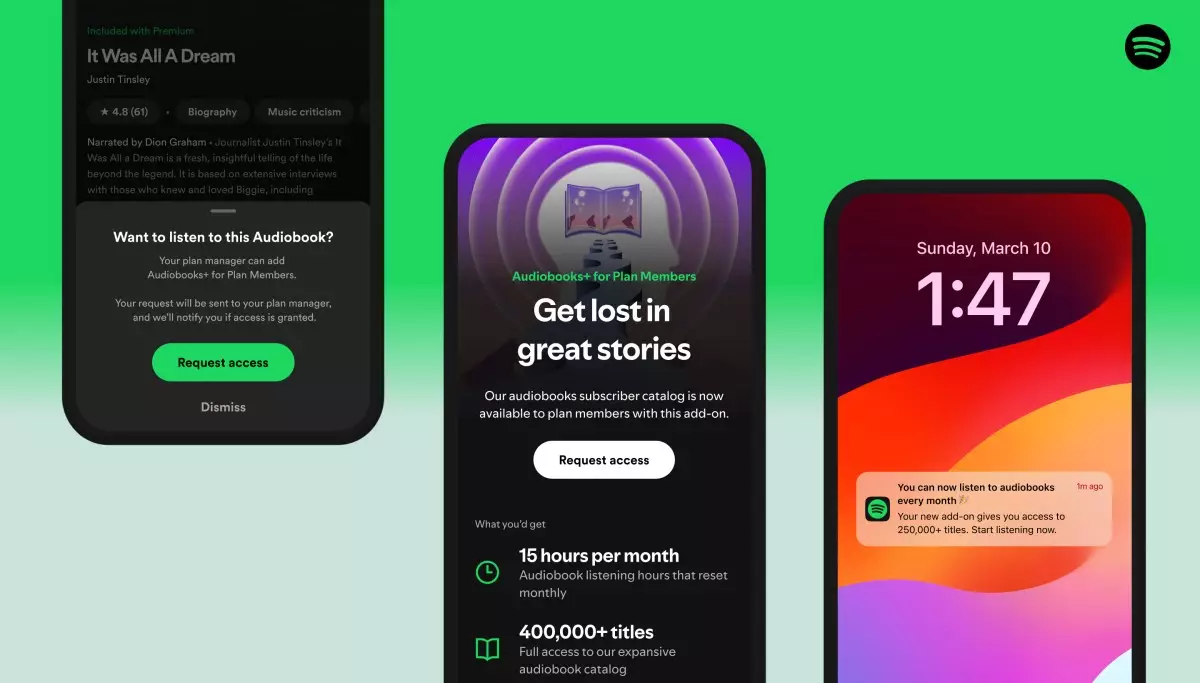In an increasingly saturated market, Spotify’s recent move to expand audiobook accessibility within the United States signals a bold and strategic effort to diversify its content offerings and deepen user engagement. This isn’t just about adding another feature; it’s about transforming the platform into an all-encompassing ecosystem for digital entertainment. By introducing the Audiobooks+ plan, Spotify is not merely monetizing existing listeners but cleverly capturing more value from its loyal customer base—particularly those who might have viewed audiobooks as a mere fringe feature rather than a core component of their listening habits.
While at face value this expansion appears to be a straightforward product rollout, the latent implications are much more profound. The shift signifies an acknowledgement that audiobooks are more than a passing trend—they are becoming an essential industry segment that can complement music and podcasts, ultimately making Spotify a one-stop-shop for audio content. The company’s move to enable household members access through family and Duo plans is a testament to its understanding that consumer flexibility and shared experiences drive retention. It encourages family units to embrace the platform as a communal activity, where multiple users within a household can benefit from audiobooks simultaneously—thus amplifying engagement and potential revenue.
Disrupting Traditional Market Barriers and Creating New Revenue Streams
Previously, Spotify’s audiobooks were somewhat restricted, primarily accessible only to the account holder under premium subscription models. This restriction limited the platform’s ability to maximize the full potential of its user base. The advent of the Audiobooks+ plan changes the game entirely by allowing multiple household members to tap into the same audiobook library seamlessly. This not only enhances perceived value but also subtly pressures competitors to adapt or innovate to keep pace.
Financially, the move appears calculated to boost Revenue Per User (RPU). The monthly fee of $11.99 for Audiobooks+ positions itself as an attractive upgrade for voracious consumers, especially considering the ability to add 15 hours of listening—an ample allotment that caters to serious audiobook enthusiasts. Although the plan might seem excessive for casual listeners, its real power lies in fostering habitual engagement. The more hours a user spends immersed in audiobooks, the more entrenched they become within Spotify’s ecosystem, reducing the likelihood of churn.
In addition, this strategic expansion comes at a moment when Spotify recently announced price hikes across multiple regions. It reflects a broader pattern of monetization efforts, where the company balances price increases with added value offerings to justify the higher fees. Such tactics are increasingly necessary as advertising revenue remains volatile, and the company seeks alternate streams—like subscription upgrades and content diversification—to stabilize its financial future.
Potential Challenges and the Road Ahead
Despite the promising rollout, Spotify’s ambitions are not without hurdles. The platform’s core challenge is to accurately measure and foster audiobook engagement, which currently remains opaque—Spotify does not publicly share how many of its music or podcast listeners also delve into audiobooks. Without clear data, it’s difficult to gauge whether the added investment in audiobook infrastructure will translate into sustained revenue growth or merely supplementary spending from existing users.
Moreover, the competitive landscape is intensifying. Audible, Apple Books, and other dedicated audiobook providers have a significant head start in terms of market share and brand loyalty. Spotify’s entry into this domain, while strategic, must be accompanied by compelling content partnerships, exclusive titles, and innovative features like customized recommendations to lure listeners away from established players.
Yet, the company’s willingness to experiment—evidenced by its consideration of direct sales in the future—may offer the agility needed to carve out a significant niche. The real test will be in how well Spotify manages to integrate audiobooks into its broader content ecosystem, making them an indispensable part of users’ daily routines. If successful, this strategy could reframe the platform as more than a music app, transforming it into a comprehensive entertainment hub that rivals even the likes of Amazon or Apple in the near future.

